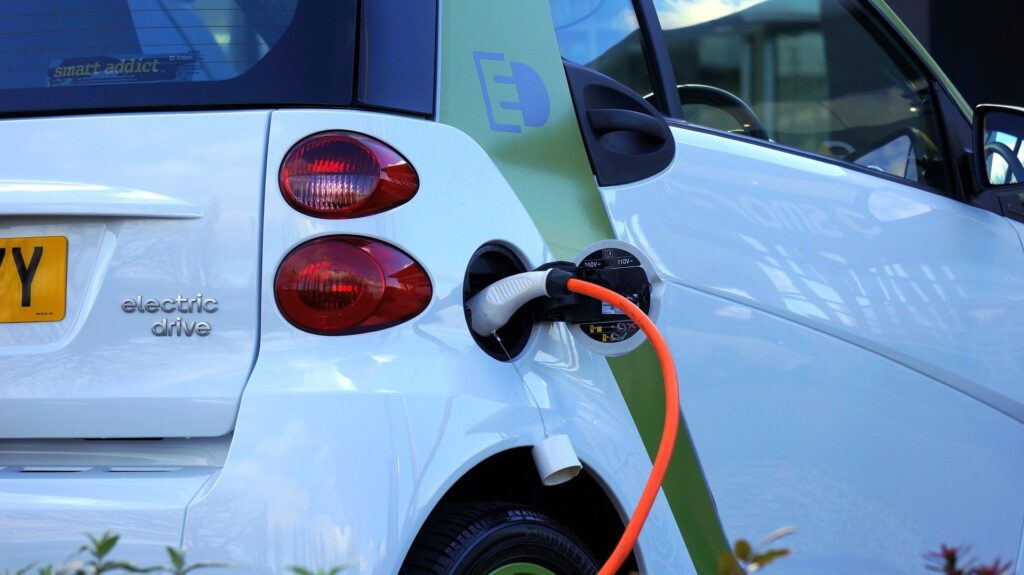The Office for Zero Emission Cars (OZEV) offers incentives(in the form of grants) to individuals and companies who purchase EVs or install charging points.

Plug-in Car Grant (PICG)
This incentive is provided to manufacturers and dealerships, who then pass along the savings to consumers. The automobiles must be on the government’s approved vehicle list.
Here is the amount you will save on your purchase by utilising these grants:
- Automobiles – up to 35% off, maximum discount of £1,500.
- Mopeds are discounted by up to 35%, with a maximum savings of £150.
- Up to 35 percent off motorcycles, with a maximum savings of £500.
- Small vans – up to 35 percent, with a £2,500 cap.
- Large automobiles: up to 20% off, with a maximum savings of £5,000.
Electric Vehicle Homecharge Scheme (EVHS)
On March 31, 2022, the Electric Car Homecharge Scheme (EVHS), which helps plug-in car owners offset up to £350 of their home EV charger, will be phased out for single-unit properties such as bungalows, detached, semi-detached, and terraced homes.
The service will remain accessible to both apartment-dwelling proprietors and tenants (flats and single-use properties).
To make a claim, the following steps must be taken:
- Possess a residence with off-street parking.
- On the official website, you may check whether your electric vehicle is eligible.
- To complete the procedure, engage a qualified installer and charger.
Workplace Charging Scheme (WCS) grant
The Workplace Charging Scheme (WCS) is a voucher-based programme that allows businesses to install electric car charging stations. It can cover up to 75% of the cost, or £350 per socket for up to 40 sockets.
Remember the following three factors while applying for WCS:
- Your business needs a Companies House Reference Number.
- The installation of the chargers needs either ownership of the company’s property or landlord approval.
- Utilize the services of a certified EV charging station.
On-street Residential Chargepoint Scheme (ORCS)
The On-street Residential Chargepoint Scheme (ORCS) helps local governments offset the cost of installing electric vehicle chargers for private usage on public roadways. This is fantastic for those without off-street parking.
The Energy Saving Trust (EST) manages the OLEV initiative and makes a limited amount of money accessible to local governments on a first-come, first-served basis.
Get in touch with our affiliated Cryptocurrency Forensic Specialists at CNC Intelligence for free by filling out the form below.
Grants for Electric Vehicles with a New Twist
In the United Kingdom, electric cars will no longer be eligible for plug-in car grants, since the government has terminated an 11-year-old programme. The government of the United Kingdom has officially eliminated the £1,500 incentive for purchasing electric automobiles. The Plug-In Car Subsidy (PICG) was created to provide EV customers with a 5,000-pound subsidy.
The government of the United Kingdom has said that it will now concentrate on enhancing electric car charging. Since its start, the government has allegedly spent 1,4 billion pounds on this award programme. According to the UK government, this programme has aided the country’s electric car revolution by assisting the purchase of nearly 500,000 clean vehicles.
While the incentive has been discontinued, the UK government has stated that it will be honored for those who purchased the vehicle prior to the announcement and that $300 million is still available to assist with the purchase of electric taxis, motorcycles, vans, lorries, and wheelchair-accessible vehicles.
Charging infrastructure is essential to the development of electric vehicles. A scarcity of charging infrastructure hinders the development of electric vehicles.
To aid in the expansion of the country’s electric car ecosystem, the British government plans to invest in the development of a comprehensive EV charging infrastructure. With a boom in demand for electric cars and increased worries about the role of vehicular emissions in global warming, the UK government intends to invest in EV charging infrastructure to further promote electric mobility.
When you comment, your name, comment, and the timestamp will be public. We also store this data, which may be used for research or content creation in accordance with our Privacy Policy. By commenting, you consent to these terms.
